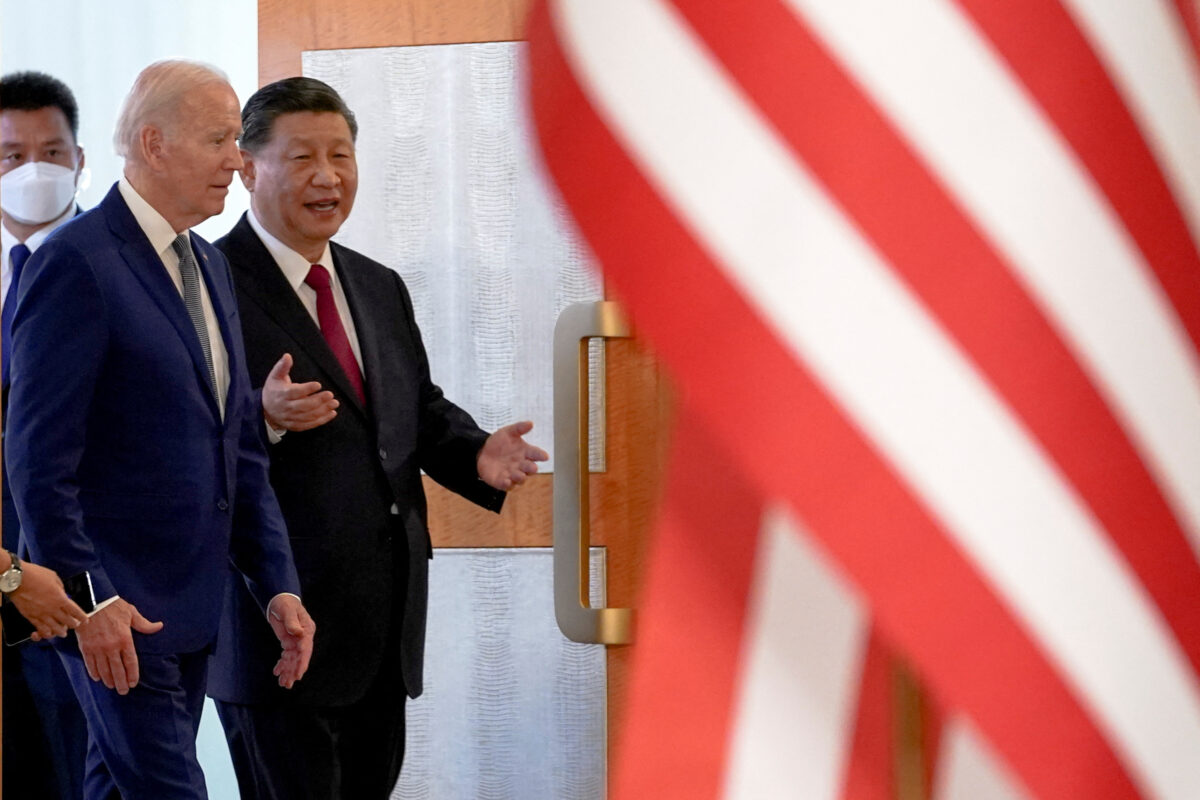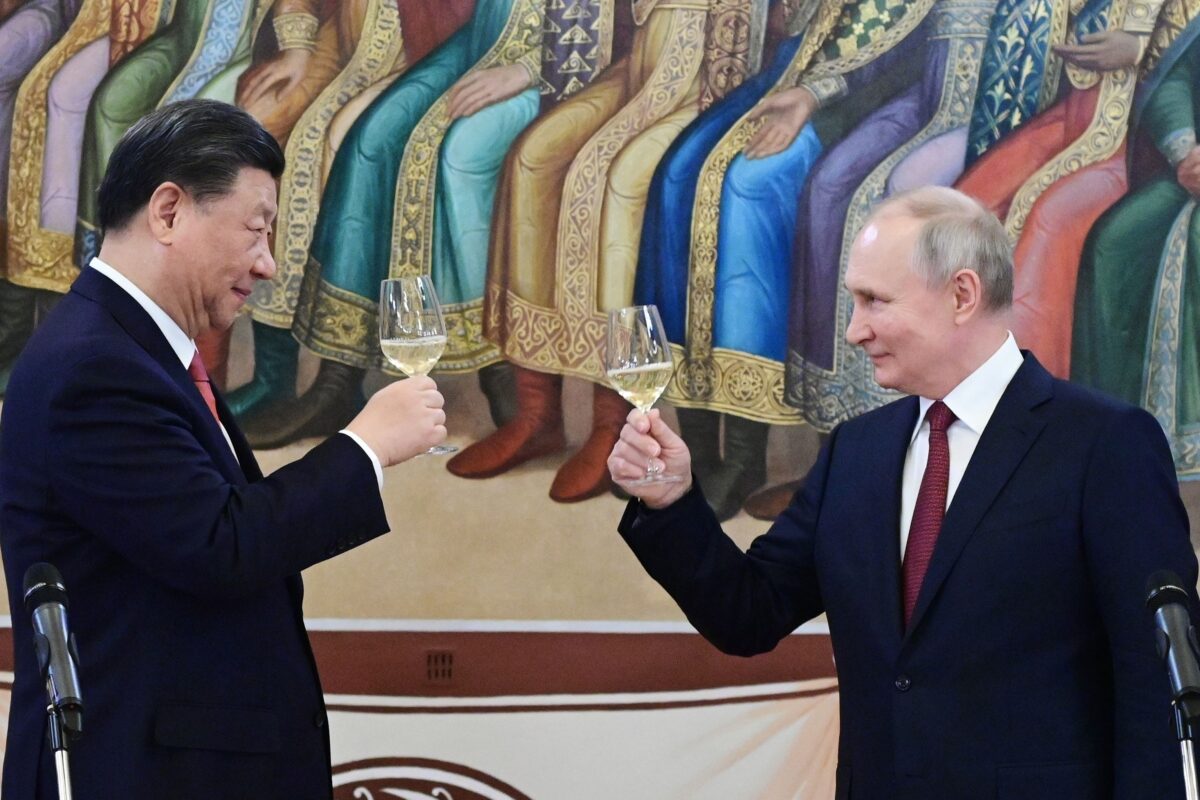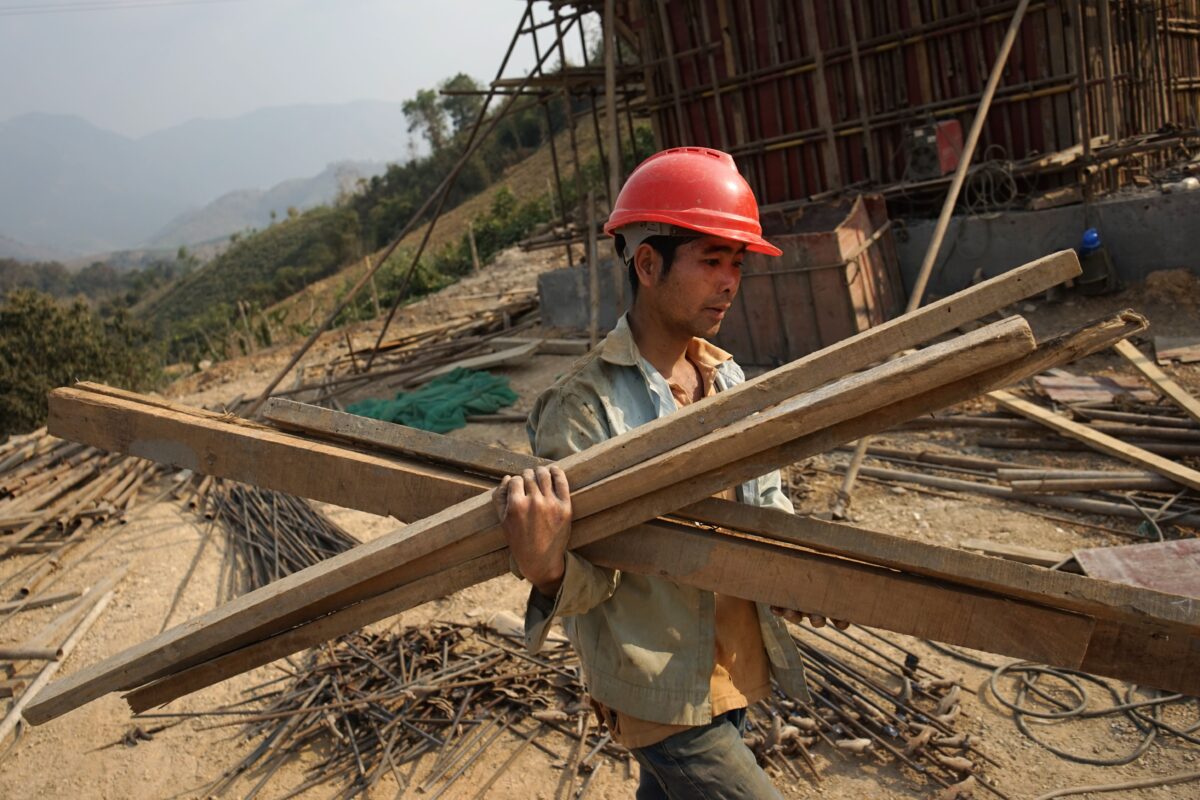


The U.S. government needs to offer the world an alternative to China’s Belt and Road Initiative (BRI) beyond a “don’t work with China” approach, experts say.
It has been about a decade since Beijing announced the BRI, previously named the One Belt, One Road Initiative. This initiative builds and finances infrastructure, transportation, technology, and energy projects across Africa, Asia, Europe, and South America.
But while Chinese officials assert this is a benign international endeavor meant to bolster trade, critics have described China expanding its role in economies across the globe as “debt-trap diplomacy,” which would leave borrowers vulnerable to Chinese interests and diminish U.S. influence on the world stage.
The BRI, sometimes referred to as the New Silk Road, has allowed China to become the world’s largest official creditor, investing an estimated $1 trillion in dozens of countries in the last 10 years. A significant sum of the financing has consisted of loans attached with specific terms and conditions that are advantageous to Beijing.
For example, it is estimated that the People’s Bank of China slaps an interest rate of 5 percent on its loans, far higher than the International Monetary Fund’s (IMF) 2 percent.
The BRI further pledges trillions of dollars in investments in the coming years, appealing to struggling nations. At a time when many countries are grappling with enormous debt levels, high inflation, and slowing economic growth, these financial packages might appear attractive.
Researchers from the World Bank, Harvard Kennedy School, Kiel Institute for the World Economy, and AidData also reported that China has turned into an emergency rescue lender by spending $240 billion to bail out nearly two dozen debtor nations, such as Pakistan and Kenya. Experts have likened it to what occurred after World War Two when the United States morphed into a global financial power and international crisis manager.
As China and Russia attempt to reconfigure the world order following Moscow’s invasion of Ukraine, Chinese leader Xi Jinping recently urged Eurasian countries at a Eurasian Economic Union (EAEU) forum to enhance their participation in the BRI “to open up a path of happiness that benefits the whole world.”
At the first-ever China-Central Asia Summit earlier this month, Xi pledged close to $4 billion in economic, energy, and security development financing for Kazakhstan, Kyrgyzstan, Tajikistan, Turkmenistan, and Uzbekistan.
Collapsing countries desperate for cash infusions are also turning to China out of desperation, from Taliban-ruled Afghanistan to inflation-ravaged Argentina to unstable African nations.
But these decisions come at a cost for the United States because the BRI could diminish America’s ability to exert its influence over the world, according to political observers.
“Unfortunately for the West, BRI is an ambitious and hopeful project that speaks to the aspirations of China’s friends and potential friends,” said Daniel Runde, senior vice president at the Center for Strategic and International Studies (CSIS), at a May 25 House Financial Services subcommittee hearing.
“To counter the BRI, the United States needs an alternative positive narrative that says more than ‘don’t work with China.’ Hoping that BRI fails is not a strategy. We need a higher quality infrastructure and energy alternative to the BRI over the next 20 years.”
During the subcommittee’s hearing titled “International Financial Institutions in an Era of Great Power Competition,” Rep. Joyce Betty (D-Ohio) accused China of pushing countries into unsustainable debt “through obscure lending practices and unwillingness to restructure loans with global norms.”
Analysts purport that Beijing has abandoned the need to determine borrowers’ creditworthiness. Instead, China has been a liberal lender because the heavier the debt burden, the more leverage Beijing possesses.
Some have alluded to Laos as an example of this.
In March 2021, Laos announced a 25-year concession agreement that extends majority control to a Chinese-owned company—China Southern Power Grid Company—over the nation’s power grid. Officials say the decision was made due to massive debt.
“Given the current economic downturn and the enormous debt, the Lao government does not have the ability to manage and operate a network of powerlines, so they decided to allow the Chinese, who have the finances, technological aptitude, and manpower to take over,” an official told Radio Free Asia.
The U.S. government recently proposed to connect Arab and Gulf countries with India through a network of ports and railways. The objective, analysts say, is to entice Middle Eastern states away from Beijing and back into the arms of Washington.
According to Jesse Schreger, an associate professor of business at the Columbia Business School, U.S. and other G-7 officials can mirror this type of strategy by scaling up lending capacity from various multilateral development banks, such as the IMF, for infrastructure and other public works projects.
To resolve the myriad of debt and balance of payments crises impacting developing economies worldwide, there needs to be “a coordinated international effort,” he said at the congressional hearing.
Several finance-related reforms could also better serve the broader aim of curtailing Chinese influence, says Dr. Daouda Sembene, a distinguished non-resident fellow at the Center for Global Development.
“In the current geopolitical context, it seems to me that successful engagement towards the reform of the global financial architecture may produce more significant geostrategic payoffs for the United States than great power competition in the developing world, particularly Africa,” he told the subcommittee hearing.
“By facilitating these overdue reforms, the United States can make a long way toward helping IFIs unlock additional finance for developing countries and deliver on the global public good agenda.”
The IMF and member states, led by the United States, can also insist that China offer debt relief to impoverished and overburdened nations that have been the victims of irresponsible lending, recommends Mark Rosen, the former acting U.S. executive director of the IMF.
A recent study by AidData, in partnership with the Peterson Institute for International Economics (PIIE) and Center for Global Development, assessed 100 loan contracts. The report authors discovered that the agreements grant China immense leverage over borrowers by inserting provisions that depart from typical lending contracts.
“Such terms give lenders an opening to project policy influence over the sovereign borrower, and effectively limit the borrower’s policy space to cancel a Chinese loan or to issue new environmental regulations,” the report stated.
“Some of the debt contracts in our sample could pose a challenge for multilateral cooperation in debt or financial crises, since so many of their terms run directly counter to recent multilateral commitments, long-established practices, and institutional policies.”
Separate data found that China’s foreign lending portfolio to support countries facing debt distress skyrocketed to 60 percent in 2022, up from 5 percent in 2010.
In the aftermath of the COVID-19 pandemic, Chinese officials assured the international community that they had altered their loans in response to borrowers’ deteriorating economic conditions. But experts dismissed these changes, arguing that they needed to go further.
Nuclear power could play an integral part in this strategy to reduce China’s might in the global marketplace.
Rich Powell, CEO of ClearPath and ClearPath Action, told lawmakers that nuclear exports account for a significant part of the BRI, with China constructing more nuclear reactors at home than any other country. The world’s second-largest economy presently has 55 operable reactors, 23 under construction, and dozens more in the pipeline.
“This also gives the Chinese significant sway over the future nuclear supply chain for all reactors globally,” Powell said. Chinese officials have said they could construct up to 30 reactors abroad by 2030, with agreements already signed in Argentina and negotiations underway with Saudi Arabia, Kazakhstan, and others.
He championed the International Nuclear Energy Act of 2023, a bipartisan legislation sponsored by Rep. Byron Donalds (R-Fla.) and Rep. James Clyburn (D-S.C.) that establishes a nuclear export strategy to offset China’s and Russia’s expanding influence in this area.


